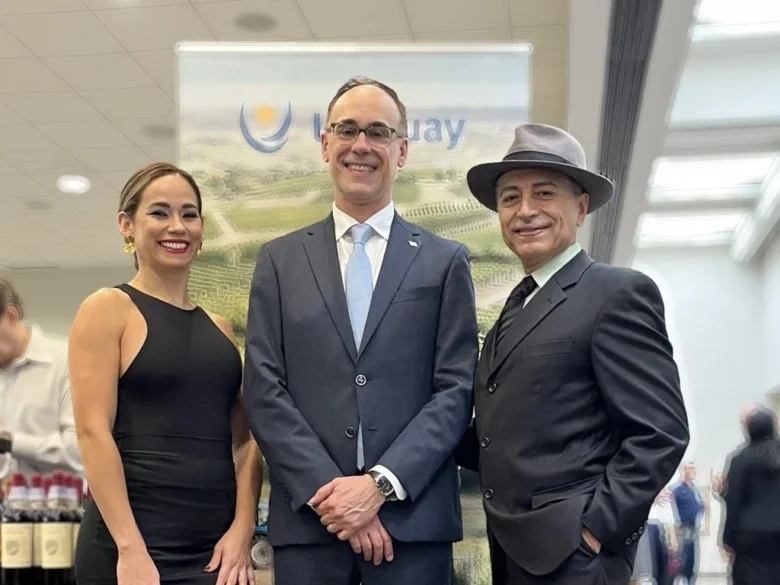Luis Angel, an internationally recognized Argentine tango expert, performer, historian, and instructor, recently brought the elegance and intensity of traditional tango to the U.S. Senate.
Luis Angel performed alongside his dance partner Damacia at “Embassy Night,” an event hosted by the Congressional Hispanic Staff Association (CHSA), in the Hart Senate Building.
Born and raised in Argentina in a family of musicians, Luis Angel focuses on traditional tango in both performance and instruction. “It’s easier to learn and then adapt to other forms than vice versa,” he explains. Contrasting traditional tango with the more fluid nuevo tango, he adds, “The music of nuevo tango is more fluid, and because it’s more fluid, it’s more elastic—the dancing itself is softer, this change. If I tried to dance with all this fluid movement to traditional music, it’s going to be hard. But traditional dance with fluid music is going to work because the root is there, the sense is there.”
The performance was made possible through the sponsorship of the Embassy of Uruguay, which supported the event as part of its public diplomacy efforts.
“It is important for Uruguay to participate in events inside Congress and those organized by congressional staffers to showcase our country—our culture, music, dances, food,” Gustavos Piegas Marsiglia, a spokesperson for the embassy, told Diplomatica. “It is an outstanding opportunity to exhibit our country and to educate people about a place that, in general, is not on top of the newspaper headlines.”
Although Luis Angel was initially surprised by the request to perform that evening, Piegas confirmed the performance had always been part of the embassy’s plan. The venue was reserved with that purpose in mind.
“This performance wasn’t just about showcasing tango; it was about honoring the legacy of Hispanic contributions to art, music, and culture both in the U.S. and beyond,” said Luis Angel, who has previously taught and performed at the Kennedy Center, George Washington University, the U.S. State Department, and the Library of Congress. “The Senate is a place of great importance, and it was surreal to be able to share our heritage in such a meaningful way.”
“The audience was fully engaged with the music and the sensual and elegant tango moves that define this dance,” Piegas added. “Many were surprised to learn that Uruguay is also a tango country—and that we produce such extraordinary wines.”
The Embassy’s Cultural Department coordinates with political, economic-commercial, and consular divisions to support broader diplomatic goals. “In this particular case, it is a priority to be present in Congress, reinforcing our political and legislative outreach, and attracting new staffers and audiences who may not yet know, ‘we are here,’” said Piegas.
After the event, Luis Angel conducted research and couldn’t find any record of any similar dance performances being conducted in the Senate.
“I couldn’t find anyone performing any type of things inside of the Senate, because, you know, the Senate is not for gathering or dancing or performing,” Luis Angel told Diplomatica. “Normally, when the Senate organized something, they did it outside of the Senate itself. You know, it’s maybe in the garden, on the park, something outside.”
Luis Angel said that, if true, being the first performers in the Senate would hold special meaning for him and Damacia.
“Not only that we danced at the Senate, inside of the Senate, in the Capitol itself, but that I couldn’t find anyone who have done or achieved the same type of milestone,” he said.
The evening was apparently meaningful for those in attendance, as well. Luis Angel said he was approached after the performance by a member of Congress and their spouse, expressing how deeply moved they were. When several members subsequently expressed interest in learning tango, Piegas and Luis Angel hosted lessons for them and their staff at the embassy, further deepening engagement through the art form.
Luis Angel’s work continues to span embassies, cultural institutions such as the Mexican Cultural Institute, and festivals including the DC Tango Festival. His political foray aside, he remains focused on his mission of art as cultural exchange. “Whenever people applaud at the end of class, I say no. Do not thank me,” he says. “I thank you for wanting to learn about my culture.”
